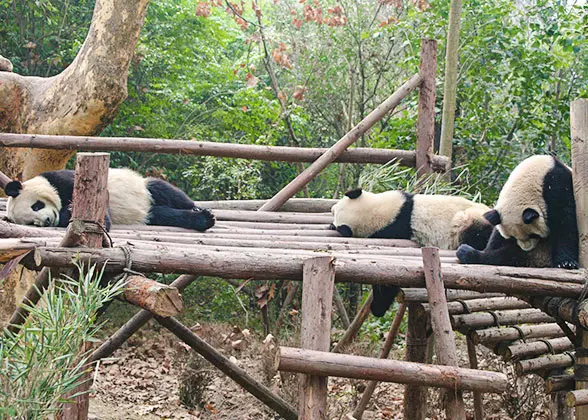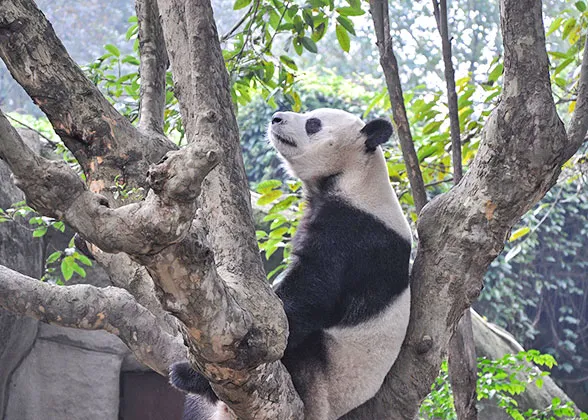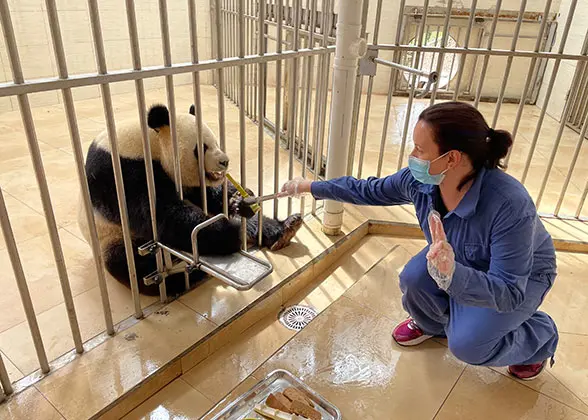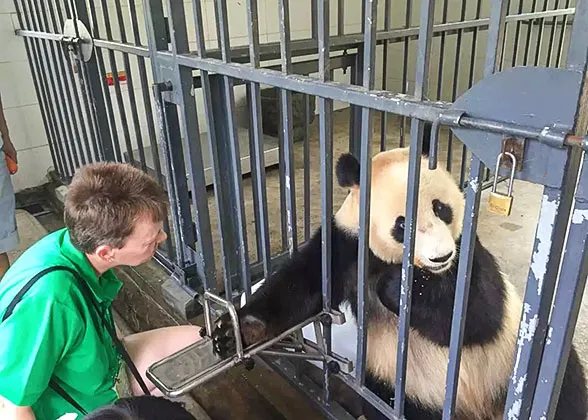Wolong National Nature Reserve
Prior to the catastrophic Wenchuan Earthquake in 2008, when it came to seeing pandas, people thought of Wolong National Nature Reserve, which is acclaimed as the Hometown of Giant Pandas, the National Treasure of China. More than one hundred pandas once inhabited there, accounting for over 10% of the nation's total.
Wolong National Nature Reserve is located in the southwest of Wenchuan County, 130km (80 miles) from Chengdu, the capital of Sichuan Province. It is the core part of Sichuan Giant Panda Sanctuaries, one of the World Natural Heritages in China. Completed in 1963, Wolong National Natural Reserve is the earliest, largest and best-known panda reserve in China. It was placed on UNESCO Man and Biosphere Reserve Network in 1980. With the warm and humid climate favorable to bamboos, pandas' favorite food, it is an ideal place for the living and reproduction of giant pandas.
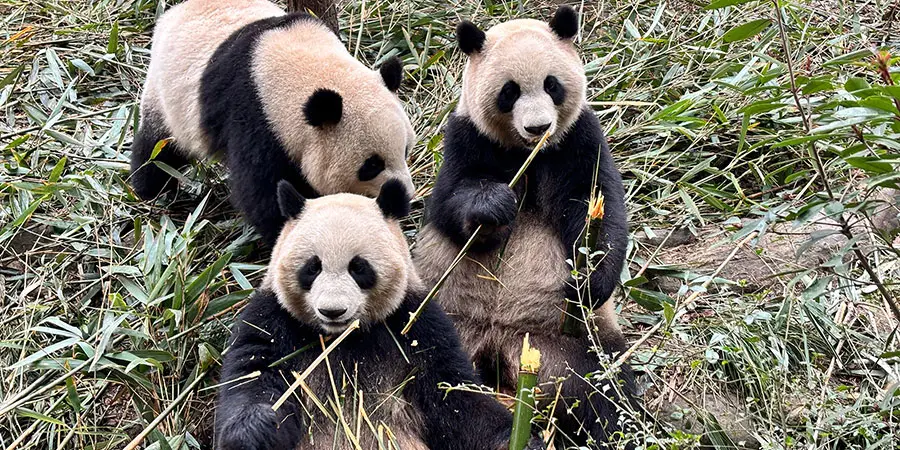 |
| Lovely Gaint Pandas in Wolong Nature Reserve |
The reserve is also widely known as a 'Bio-gene Bank' because of the wide variety of animals and plants, including 56 rare and endangered species such as red panda, golden monkey, white-lipped deer and precious plants such as yew and beech.
Shenshuping Panda Center Built in Wolong after Wenchuan Earthquake
Unfortunately, the Hetaoping Panda Center of Wolong Giant Panda Nature Reserve was badly destroyed by the Wenchuan Earthquake and most pandas were relocated to Bifengxia Base of China Panda Protection and Research Center. Sponsored by the Hong Kong Special Administrative Region, a new panda center was built in Shenshuping of Gengda Town in the reserve and put into use since Oct. 30, 2012. From then on, pandas were transferred to their new home in batches. On May 11, 2016, Shenshuping Panda Center began to receive visitors. Over 90 captive pandas are kept there.
After eight years of desolation, the reserve now gains a new lease of life. Covering an area of about 150 hectares (371 acres), Shengshuping Base consists of 59 colony houses. Hi-tech is commonplace in the Research Center, which is a world leader in propagating the panda species. Pandas are national treasures and also goodwill ambassadors.
Unlike regular zoos, Wolong National Nature Reserve provides natural environment for pandas and they are not kept in cages. Therefore, while driving or walking in the reserve, you may come across cute pandas. In the reserve, there are Baby Panda Zone, Sub-adult Panda Zone, Grown-up Panda Zone, Breeding Zone, and Wildness Training Zone. You may see them walking around slowly, romping happily, eating bamboos with appetite, or climbing up the stub to present visitors a show.
|
|
Besides those cute creatures, the natural scene itself in Wolong National Nature Reserve is a delight for visitors. Visitors will see luxuriant bamboo groves here and there. What also makes Wolong special is that it is more natural and less commercialized. Without huge crowds of tourists, all that the reserve has are undulating hills, murmuring streams, fresh air, adorable pandas, and other rare animals.
Get to know the daily life of Pandas by working in the panda house
Want to see how pandas spend their day? The experimental activity is available for you to do some chores for the panda family.
During the activity, the first work you will do is to clean the panda house, pick up the feces and carry bamboo for the foodie panda. After, you will observe the breeders feeding pandas. Then watch a documentary of pandas, and learn about the great jobs that have been down by China to protect the once endangered pandas. In the afternoon, watch the cutest baby panda at the panda kindergarten. Finally, be a mother panda, cook healthy and delicious food for lovely pandas on your own.
The fare is around CNY1,000 for one person one day, including the ticket of the park. If you are interested in the activity, contact our travel consultant to plan it for you in advance.
|
|
How to get to Wolong National Nature Reserve
| Ticket Price | CNY 90 Free for children under 6 and the seniors over 60 CNY 40 for the minors aged 7-18 |
|---|---|
| Opening Hours | 09:00 – 17:00 (stop entering at 16:50) |
| Recommended Time for a Visit | Half a day |
Other places to see pandas in Chengdu:
Read more information about Chinese Giant Panda:![]() Facts
Facts![]() Growing Process
Growing Process![]() Panda Diplomacy
Panda Diplomacy![]() FAQs
FAQs
|
|

